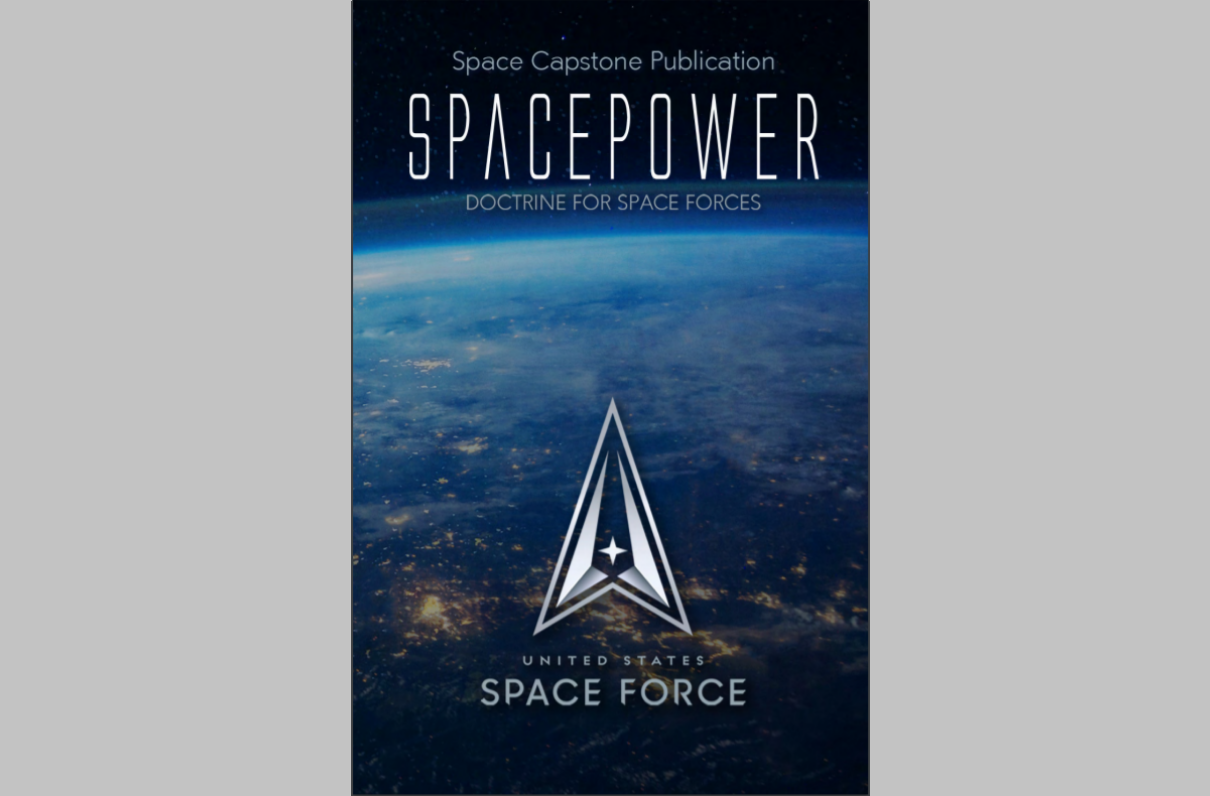Editor’s note: This article by Gina Harkins originally appeared on Military.com, a leading source of news for the military and veteran community.
The Space Force released an official doctrine Monday, outlining the culture of the all-new military service and officially designating the cosmos as a warfighting domain.
"Spacepower" is a new 64-page publication explaining how the Space Force fits into U.S. national security. The publication hit about eight months after the creation of the force; it's expected to be followed by operational and tactical doctrines as the service further distinguishes its warfighting roles.
Maj. Gen. William Liquori, director of strategic requirements, architectures and analysis with the Space Force, called the publication of "Spacepower" a big day for the service.
"Every single service has its own unique doctrine," he said. "... The document highlights the uniqueness of our domain amongst the other warfighting domains, and highlights -- to all of the force, to our allies and other space professionals -- the important role military space power plays in the context of national space power."
[RELATED: As One MOAA Member Returns From Space, Another Prepares for Liftoff]
The doctrine also lays out the skill sets the Space Force will need in its personnel to move forward as a new military service. The publication, at least for now, refers to those personnel as "space warfighters."
The official name for Space Force members is still under consideration, Maj. William Russell, a spokesman for the service said.
“Space warfighters or space professionals is the generic term until an official name is announced,” he said.
Space warfighters, the doctrine states, won't just be committed to warfighting, but to the "mastery of space."
"As an equal part of the Joint Force, these combat-credible forces are continuously engaged in the military competition required to deter war and counter the malign actions of strategic competitors," the doctrine states. "Should deterrence fail, military space forces are prepared to fight and win our Nation's wars, in space, from space, and to space."
[RELATED: Goldfein Departs: On a Future Bomber, Female Pilots and Surviving a Shootdown]
Nearly two dozen people worked on creating the doctrine, including military officers, enlisted personnel and civilian experts. Col. Casey Beard, commander of Space Delta 9 who led the drafting of the document, said it was important to set the service's culture early on.
"We knew that the service would be comprised of individuals who had served in the Air Force and ... other services," Beard said. "They would no longer be airmen, soldiers, sailors and Marines. It would be a new entity, a new cadre. The organization itself would need a guidepost that would say, 'This is why we exist. This is who we are and what we're all about.'"
Chief of Space Operations Gen. John Raymond said the service will get only one shot at setting that tone for the new force, Liquori added, making it important that they get it right.
"There's a section of the document that talks about the things that we value," Liquori said. "Gen. Raymond has been very clear from the beginning that it's agility, innovation and boldness. That's something that we want to help develop the culture of this service."
The document also outlines five core Space Force competencies, around which the service must be organized, trained and equipped. Those competencies are space security; combat power projection; space mobility and logistics; information mobility; and domain awareness.
"Spacepower" then lists seven Space Force disciplines the service will need to support those competencies: orbital warfare; space electromagnetic warfare; space battle management; space access and sustainment; military intelligence; engineering and acquisition; and cyber operations.
[RELATED: Space Admiral? House Lawmakers Want Navy Ranks for Space Force]
The Space Force previously announced it would adopt 16 Air Force specialty codes.
Liquori said the new doctrine will continue to evolve, which Beard said will determine future career paths for Space Force members.
"What we have to continue to develop is understanding, 'OK, for any discipline, what are the skill sets that are needed? What are the qualification standards that are required to be able to conduct those? And how do they interact with one another to be able to achieve each of the competencies?'
"[This] will help us to hone that as we develop our personnel and we start building those accession and training pipelines," he added.
MOAA Knows Why You Serve
We understand the needs and concerns of military families – and we’re here to help you meet life’s challenges along the way. Join MOAA now and get the support you need.
